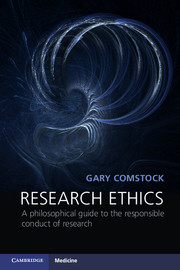4 - Justify decisions
Published online by Cambridge University Press: 05 February 2013
Summary
Give reasons to justify your decisions
One need not fabricate data or figures to be guilty of misconduct. “Significant departures” from “accepted practices of the scientific community” are also forbidden. When researchers violate standards “intentionally, or knowingly, or recklessly,” they are guilty of misconduct. What counts as a significant departure from accepted practice? Sometimes it is difficult to say. Consider the challenges of representing data through the use of images. Images are often easier to interpret than other formats and data may be more readily conceptualized if they are modified with image-enhancing software. Is using Photoshop to “clean up” or emphasize certain aspects of a digital image falsification? Is it a federal crime to add or change the colors of various structures in an image? Not necessarily. For if you can adequately justify your work to others, you will be on safe ground. To stay on safe ground, be sure to disclose what you have done – and read this chapter carefully.
Your being ready to provide reasons for your decisions is even more important in light of the fact that acceptable practices vary from field to field. Some rules even vary within a field, and some from lab to lab. It is not even unheard of for different students to receive different reprimands from the same professor for violating the same rule when the two students have different levels of experience. Nor do the complexities end there, for sometimes rules change at the level of the professional organization – and without any formal notice. How can a junior member of the community expect to stay upright on such shifting ground? How can we keep up with nuanced changes or be expected to know how to behave in novel moral dilemmas for which there are, as yet, no accepted rules?
- Type
- Chapter
- Information
- Research EthicsA Philosophical Guide to the Responsible Conduct of Research, pp. 79 - 90Publisher: Cambridge University PressPrint publication year: 2013



